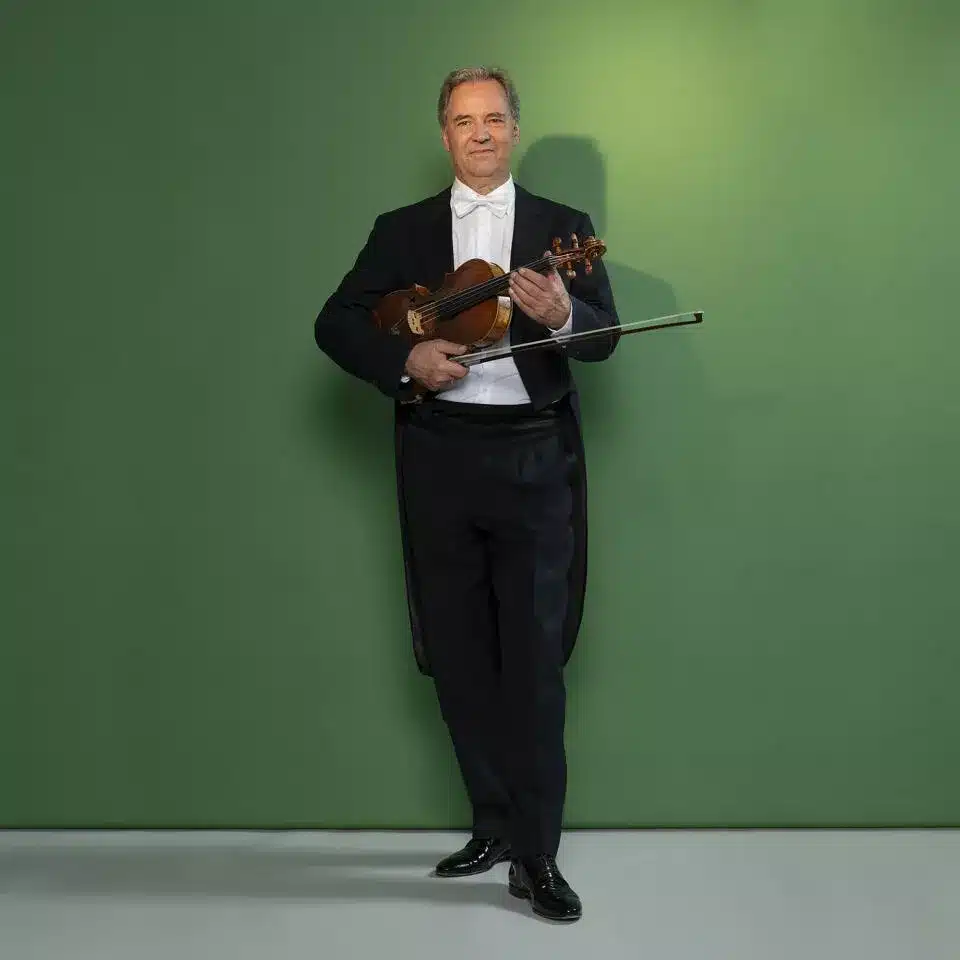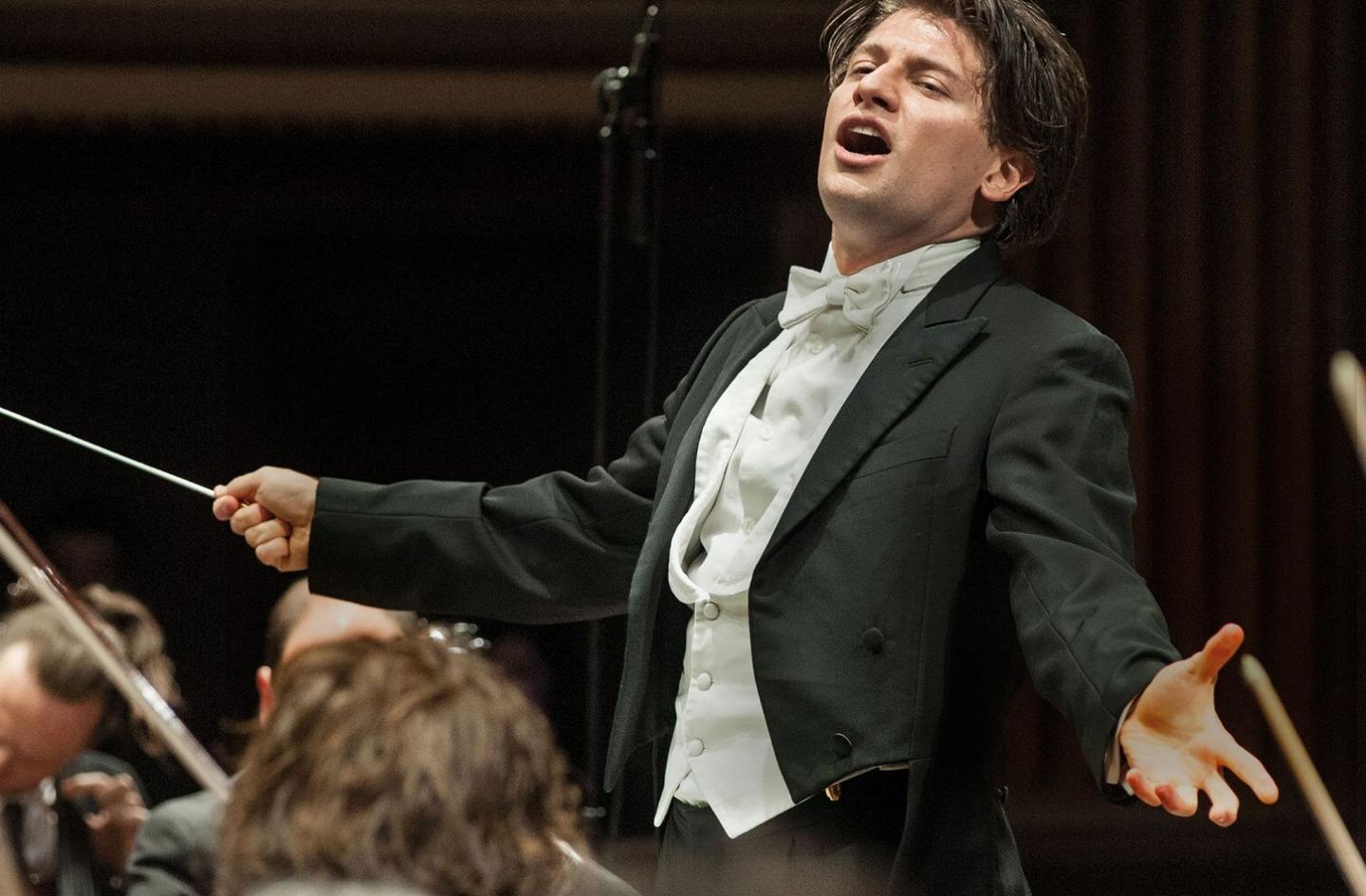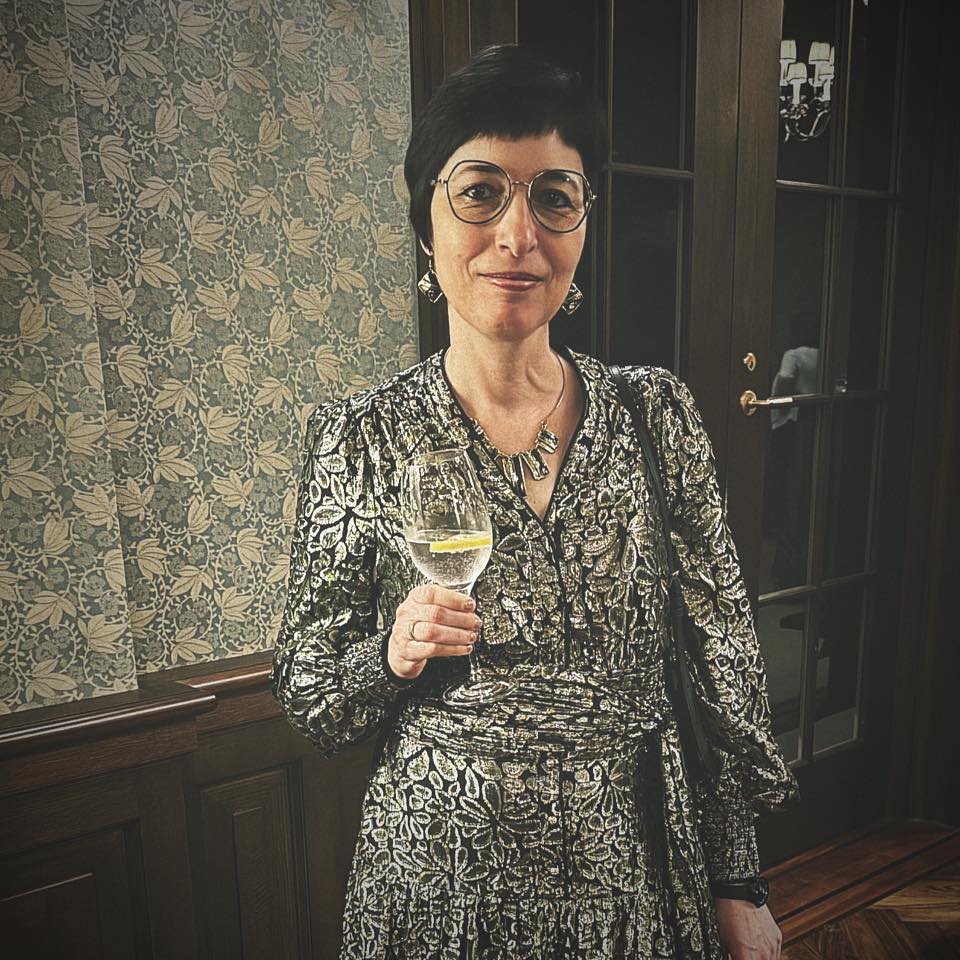In Germany, more people attend orchestral concerts than football
OrchestrasThe retiring violist of Bavarian Radio, Andreas Marschik, gives his views on the prime minister’s latest plan to halve the number of broadcast orchestras:
‘I have been a member of the BRSO for over 30 years and know many of the other radio ensembles. The broadcasting orchestras are excellent everywhere and play an important role in music education and in the culture of our country. Why should you reduce them? If you don’t want to finance it through the broadcasting fee, you have to find other forms…. One should also not forget that a few other sectors of the economy would subsequently be affected by such a reduction…
‘The Bavarian Radio Symphony Orchestra is recognized worldwide and popular with audiences. I think: If broadcasting and politics support this orchestra, then a separate house must be created for it. There is an audience for this: In Germany, more people attend classical concerts than football matches.’
Full interview here.






Nice headline, but it is very hard to believe. If so, why those radio orchestras depend so much of state funding? The wellfare state sounds nice but it is not sustainable.
You haven’t really thought that through, although it’s a common accusation in the non-music press. I’m surprised to read it here.
Orchestras and opera companies perform ideally to audiences up to a maximum of 1,500 – 2,500 and they are labour intensive. Football audiences can be up to around 90,000. The difference in economy of scale is huge which means that concerts and operas are intrinsically expensive.
State funding is intended to keep ticket prices reasonably low in the belief that they should be as accessible as possible. If you believe that only rich people should have access, that’s up to you. I certainly don’t.
Furthermore, arts subsidy is a relatively small part of state funding overall.
Not everything exists on order to make money. I know it’s hard to understand for some people.
This is nonsense.
The radio orchestras have been created to explore repertoire that is not dependent upon audience attendance, so that they are more free to experiment, and still can reach audiences, through the radio. The idea was, that the regular orchestras always have to take the box office into any programming consideration.
If there had been no radio orchestras, especially in Germany, audiences would never find-out about the terrible sound of modernism and the clumsiness of atonal attempts at music. So, in whatever way, they always served and still serve an important function within the whole of music life. Also, large and unusual works of the repertoire get better chances at the radio orchestras, as works which are seldom played but would deserve a hearing. Or works which require much more rehearsel time than the more regular offerings – like some works of Stravinsky which can have very intricate ensemble playing. A musical culture in Europe should always have radio orchestras to show alternative ways of programming.
High art is not welfare. It is the essence of an aspirational civilization. The arts subsidise the society. Not the other way around.
Of course for people who only know the price of things, but not their value, that falls on deaf ears. Back on the trees!
Classical music has always depended and will always depend on subsidies. An orchestra isn’t a sustainable business model, it never was. Better to have the state/taxpayer pay for it than some vain rich sponsors that only want to hear Tchaikovsky, as it is in the US.
And the evidence for this claim is …? This guy’s words?
I think the numbers concerning soccer might be a bit misleading. It is very popular in Germany, but most people watch it on TV instead of going to stadiums.
A more relevant comparison might be measures of the musical tastes and preferences of Germans as shown by these charts:
https://miz.org/de/statistiken/bevorzugte-musikrichtungen-nach-altersgruppen
Overall, 23.2% of Germans like to listen to classical music. Divided by age, however, the numbers are troubling. About half of the people over 70 enjoy classical, but only
4.5% of youths,
7.7% aged 20-29,
12.1% aged 30-39,
16.8% aged 40-49.
The numbers for middle-aged Germans seem lower than one might hope, especially given the massive offerings and educational programs available.
About one quarter of the population likes classical music, but if the trends continue, classical music will reach a crisis point, and this in a country that does more to promote classical music than most any place on the planet.
Don’t overestimate Germany that lacks universities like in the UK and the US! The education is a disaster there, the politicians the same and the current government even worse than that! Besides Merkel hasn’t done anything so the country is in disastrous shape – this woman though was seen at concerts in Berlin and loved to go to Bayreuth and Salzburg but she leveled the country to the worst in years
The percentage of people in Germany who enjoy classical music is considerably higher than in the USA. This is the result of education and availability.
Your opinion is not related to reality.
This is complete and utter nonsense. German universities have always been rated highly in scientific research and innovation – PLUS, unlike greedy US universities, we don’t put our students in debt FOR LIFE!
More people may attend orchestral concerts than football (soccer) matches in person, but I’ll wager that far more people watch football matches on television than take in orchestral concerts on television, radio, and the Web combined.
Amazing they win so many World Cups without a huge fan base. The bundesliga has only two clubs most of us could name so the rest must be getting their support locally.
Orchestra numbers must be massive. I am prepared to believe him but I would like to see his numbers.
The problem here is that the modern type of politicians, hungry for votes, forget their country’s cultural identity, which is less concrete and of less immediate concern than being re-elected.
Wasn’t this always the case?
He is still longing for the governance of Germany in the late 30’s…..apparently.
It was always the case. But “always” – in this case – refers to a very short period in the history of mankind, where all can vote. About a hundred years more or less.
Whatever the numbers I’m sure it’s much greater than in the U.K. You only have to note the average age at the BBC proms now compared to that of say 30+ years ago (as seen on tv clips) I guess it’s almost doubled?
The eternal problem. But all these older audiences were going when THEY were young. What’s the difference? Exposure. Education, radio, and later television. I saw my first opera — The Flying Dutchman — on TV when I was about 11. (Put me off Wagner for years: a black and white TV, a difficult piece of music for young ears even though I had been weaned on Brahms and Puccini and Verdi; however I grew into it and am a devotee long since).
A year or two later I saw The Magic Flute, and things were looking up — Mozart was known ground in our house, though it was a long tome before I truly appreciated the opera.
But by secondary school, when I first encountered The Merry Widow live, I was in heaven, and spent a good bit of my spare time in university going to concerts and all the operas I could get near. I hung around the opera school just to listen and learn — I was not in the programme, but they grew used to seeing me there.
Today’s young people simply do not have the casual sort of exposure that helps you form tastes and build understanding or appreciation of music beyond the charts. That’s one thing radio orchestras can provide.
Well it makes sense – who wants to watch Bayern Munich win the Bundesliga every year……………
While in Germany, I asked a local why so many people are committed to attending symphony concerts and opera? “It’s our duty.”
If you asked one of my fellow Texans why so many people are committed to attending high school (American) football games, the response would be, “It’s our religion.”
My first reaction to this was “no way; that’s delusional BS”. But then I thought, wait, what *are* the numbers actually?
So:
The professional German football leagues (top four tiers) have a combined attendance of some 12.5 million per year.
There are 129 publicly funded orchestras in Germany (including opera orchestras) plus some other professional ones. Being generous, I’ll call it a total of 140 with an average of 100 performances per year.
Based on that numbers, it would need an average audience of 900 per concert to match professional football’s numbers.
Now Mr Marschik did neither say “professional” nor “orchestra”: it’s all of classical music vs all of football.
So on the classical side, we have chamber music, students’ recitals, amateur orchestras etc to add. How big are the audiences for this, how many events take place per year? Guesstimating a combined attendance for these events of 1’000 per month per 100’000 population gives us another 10 million visitors of classical concerts per year.
On the football side, however… All in all, there are more than 140’000 football teams in Germany; as they would have — at the very very least — an average of 10 home games per year, there are 1.4 million football games being played in Germany each year, plus the many local/regional tournaments. An average attendance of only ten visitors per amateur game would be another 14 million to football’s numbers; and as an average attendance of 300-500 is fairly normal even for 7th tier teams, “ten visitors per amateur game” is way too low, and it feels safe to at least double the overall number to 28 million per year.
In other words: No Sir, classical concerts do *not* draw more people than football. That’s delusional BS.
(Why do people keep making such idiotic claims? One, it’s comparing apples and oranges; two, do not claim to be more popular if you aren’t, because such things typically backfire.)
My definition of a civilised society.
I think we all get his point, but how can he prove that “In Germany, more people attend classical concerts than football matches.”? Trust me bro?
This doesn’t surprise me! Years ago, I remember the much missed organist, Jane Parker-Smith telling me of a lunchtime recital she once gave somewhere in Germany – apparently the organisers were wringing their hands and almost apologising that there might ‘only’ be two or three hundred attending! Given the difficulty of getting people to listen to organ recitals, she was quite amused, although I don’t remember whether she reassured them not to worry:)
The organ recital series I most remember being well supported in the UK was at St.Paul’s Cathedral, when their then organist John Scott, during a significant Bach anniversary, set out to play every single organ piece that Bach ever wrote – John was as modest as he was brilliant and he is also much missed, especially as he had found new love and happiness after moving to New York.